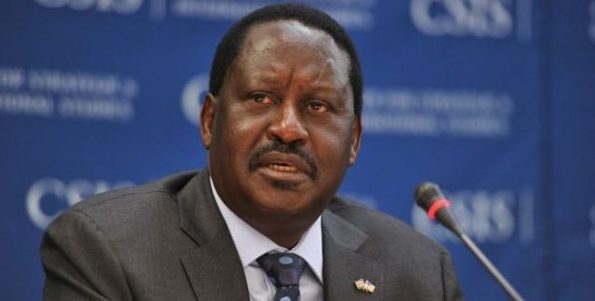International
Kenyan opposition leader, Odinga, challenges election results at Supreme Court

Raila Odinga, Kenya’s unsuccessful presidential candidate, on Monday, filed a case with the nation’s highest court contesting the outcome of the election, which went in favour of William Ruto on August 9.
Odinga, a seasoned opposition leader who campaigned with support from the ruling party and President Uhuru Kenyatta, has denounced the election’s results, calling them a “travesty.”
He fell short of Ruto by 230,000 votes, or less than 2% of the vote.
A tangible copy of the petition was submitted by the 77-year-old politician with only a short time left before the court’s 2 pm (1100 GMT) deadline for admitting the case. According to a member of his legal team, an online copy was submitted earlier in the day.
Hundreds of supporters cheered as dozens of boxes of evidence were unloaded from a truck outside the court.
“We have hopes that we have made a good case and will win,” Daniel Maanzo, a member of Odinga’s legal team, told reporters.
Although voting day went off without incident, the results released a week ago triggered heated demonstrations in some of Odinga’s strongholds, and there are worries that a protracted debate may escalate into violence in a nation with a history of post-election instability.
Read also:Opposition leader Raila Odinga takes early lead in Kenya’s presidential election
Every presidential election in Kenya since 2002 has resulted in a disagreement, and this year’s election result also led to a division inside the Independent Electoral and Boundaries Commission (IEBC), the body responsible for overseeing the vote.
The figures released by the IEBC, according to Odinga, who was running for president for the sixth time, were “null and void” and “must be quashed by a court of law,” he stated last week.
A copy of the 72-page appeal showed that Odinga’s campaign team claimed that IEBC chairman Wafula Chebukati miscounted about 140,000 ballots.
Ruto “did not satisfy the constitutional criterion of 50 percent plus 1 of the legitimate votes cast” as a result, which prevented him from being proclaimed the victor.
Judges currently have 14 days to make a decision. If they decide to nullify the results, a fresh election must be held within 60 days.
Join the conversation
Support Ripples Nigeria, hold up solutions journalism
Balanced, fearless journalism driven by data comes at huge financial costs.
As a media platform, we hold leadership accountable and will not trade the right to press freedom and free speech for a piece of cake.
If you like what we do, and are ready to uphold solutions journalism, kindly donate to the Ripples Nigeria cause.
Your support would help to ensure that citizens and institutions continue to have free access to credible and reliable information for societal development.
























